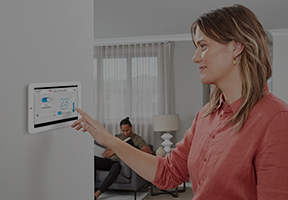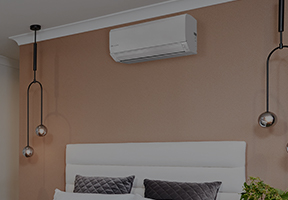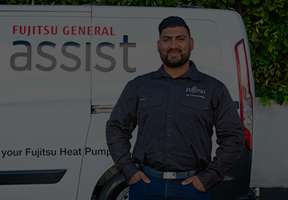What is the Ideal Heat Pump / Air Conditioner Temperature?
The ideal heat pump temperature is 25-27°C for cooling in summer and 18–21°C for heating in winter. This balance helps maintain comfort while reducing energy consumption. Setting the unit to extremely low temperatures in summer and very warm temperatures in winter can put unnecessary load on the unit and consume more energy.
Other Factors to Consider When Setting Your Air Conditioning Temperature
While the above recommendation covers the general use of residential heat pump / air conditioners, there may be other factors to consider when deciding on the ideal air conditioner temperature settings.
Humidity Levels
High relative humidity can make the air feel warmer. Lowering your heat pump / air conditioner setting helps remove moisture, or you can switch to ‘dry mode’ for milder days. So, what temperature should your house be? Learn more about the best AC setting for humid climates.
Occupancy
If your home is empty for long periods, set the temperature higher during summer and lower during winter or switch the unit off. Programmable timers can automate this to match your schedule.
Time of Day
Adjusting your air conditioning temperature setting for energy saving throughout the day can help reduce power use. For example, at night, you may be able to increase the indoor temperature during summer or lower it during winter without compromising comfort.
The Best Heat Pump Temperature Setting in Winter
Our heat pump setting for winter guide identifies the most efficient range as 18–21°C, though you may wish to adjust this based on your comfort or household needs. It’s also recommended to tweak your remote settings to reflect the shorter winter days.
The Best Air Conditioner Temperature for Summer
The best temp for aircon in summer is generally between 25-27°C, as this range balances comfort with efficient energy use. You may still need to lower the temperature to manage high humidity levels on particularly muggy days. Other ways to stay cool include blocking out heat with curtains or blinds, improving insulation to reduce the strain on your air conditioning system and using timers to cool the space before it’s occupied. For more detailed guidance, see our air conditioner setting for summer.
Contact the experts at GENERAL (formerly Fujitsu General) for more heat pump / air conditioning energy saving tips or to receive advice on upgrading the system in your home.







